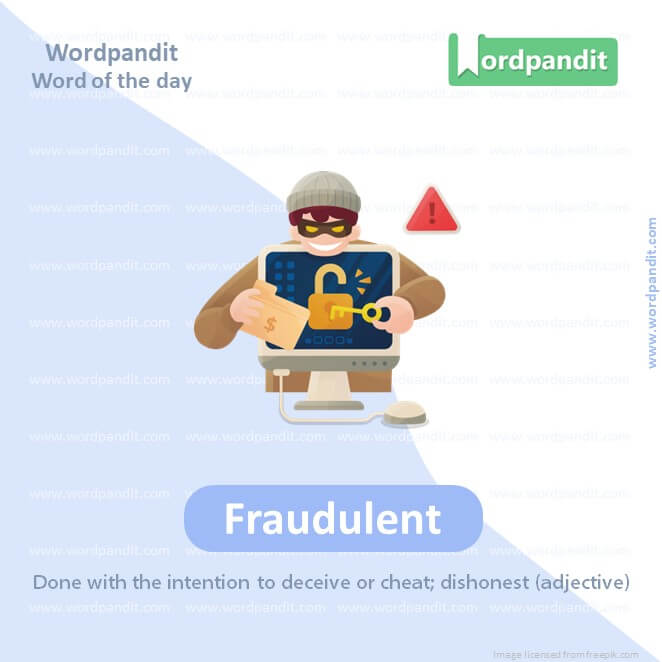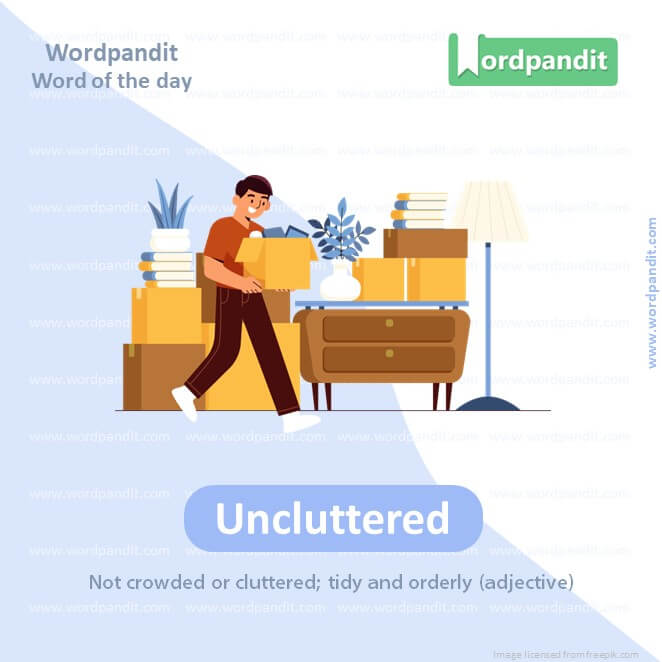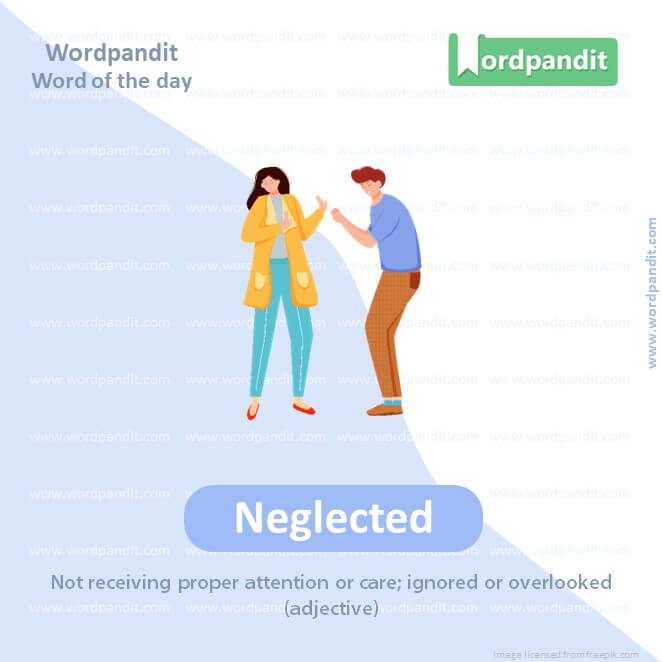Daily Vocabulary Words: List of Daily Used Words in Leading Indian Newspapers
Hi there. Welcome to this special section @ Wordpandit. Our endeavour here is straightforward: highlighting daily vocabulary words that you would come across in leading newspapers in the country. We have included the following newspapers in our selection:
• The Times of India
• The Economic Times
• Hindustan Times
• Mint
• Indian Express
We are putting in extensive work to develop your vocabulary. All you have to do is be regular with this section and check out this post daily. This is your repository of commonly used words; essentially, we are posting a list of daily used words. Hence, this has significant practical application as it teaches you words that are commonly used in leading publications mentioned above.
Visit the website daily to learn words from leading Indian newspapers.

WORD-1: Machinations
CONTEXT: This region has been a “fallback option” for the terror groups and their handlers in Pakistan whenever their machinations are scuttled in the Kashmir Valley.
SOURCE: Indian Express
EXPLANATORY PARAGRAPH: Machinations are like sneaky plans or tricks that someone does to get what they want. It’s like when someone secretly plans to win a game by being a little tricky.
MEANING: Crafty schemes or plots, usually with the intent to achieve something often dishonestly (noun).
PRONUNCIATION: ma-kuh-nay-shuns
SYNONYMS: Schemes, Plots, Intrigues, Maneuvers, Conspiracies
USAGE EXAMPLES:
1. The novel was full of political machinations.
2. He was a victim of his opponent’s machinations.
3. Her machinations to gain control were elaborate.
4. The company was rife with internal machinations.

WORD-2: Fraudulent
CONTEXT: For example, emotion detection is outside the regulatory ambit as long as it’s not used in workplaces, which leaves scope for the use of this harmful and fraudulent tech.
SOURCE: Indian Express
EXPLANATORY PARAGRAPH: Fraudulent is when someone is being dishonest or cheating to get something. It’s like when someone tells a lie to win a game.
MEANING: Done with the intention to deceive or cheat; dishonest (adjective).
PRONUNCIATION: fraw-juh-luhnt
SYNONYMS: Deceitful, Dishonest, Scamming, Counterfeit, Bogus
USAGE EXAMPLES:
1. The company was accused of fraudulent activities.
2. He faced charges for making fraudulent claims.
3. The fraudulent scheme cheated many people out of money.
4. They discovered fraudulent transactions in her account.

WORD-3: Uncluttered
CONTEXT: He argues that living in harmony with our values and connecting to something larger than ourselves enhances SQ, resulting in an uncluttered mind that sharpens our ability to focus.
SOURCE: Times of India
EXPLANATORY PARAGRAPH: Uncluttered means neat and not messy, with everything in its right place. It’s like when your room is clean and you can find all your toys easily.
MEANING: Not crowded or cluttered; tidy and orderly (adjective).
PRONUNCIATION: un-kluh-turd
SYNONYMS: Neat, Tidy, Organized, Clean, Streamlined
USAGE EXAMPLES:
1. The uncluttered room had a calming effect.
2. She preferred an uncluttered workspace.
3. The design of the house was simple and uncluttered.
4. He maintained an uncluttered schedule.
WORD-4: Formidable
CONTEXT: Where the Election Commission steps up to restore the legacy of a TN Seshan-like formidable figure by rediscovering its spine and reputation as a neutral umpire.
SOURCE: Hindustan Times
EXPLANATORY PARAGRAPH: Formidable is when something is very strong, impressive, and a little bit scary because of how good or powerful it is. It’s like seeing a huge, tall mountain that you might climb.
MEANING: Inspiring fear or respect through being impressively powerful, capable, or large (adjective).
PRONUNCIATION: for-mid-uh-buhl
SYNONYMS: Intimidating, Impressive, Daunting, Challenging, Mighty
USAGE EXAMPLES:
1. The other team was a formidable opponent.
2. She faced the formidable task of organizing the event.
3. His knowledge on the subject was formidable.
4. The mountains presented a formidable challenge.

WORD-5: Resorting
CONTEXT: Where political parties conduct a competitive election campaign without resorting to narrow appeals to caste and religion.
SOURCE: Hindustan Times
EXPLANATORY PARAGRAPH: Resorting is like choosing to do something, usually because other ways didn’t work. It’s like if your toy is stuck and after trying gently, you decide to pull it really hard.
MEANING: Turning to and adopting a strategy or course of action, especially a less preferred one (verb).
PRONUNCIATION: ri-zor-ting
SYNONYMS: Turning to, Using, Employing, Adopting, Utilizing
USAGE EXAMPLES:
1. She is resorting to legal action to solve the problem.
2. After trying peaceful methods, they were resorting to protest.
3. Resorting to borrowing money was his last option.
4. They are resorting to old methods to restore the system.

WORD-6: Neglected
CONTEXT: These districts have refused to stay neglected.
SOURCE: Indian Express
EXPLANATORY PARAGRAPH: Neglected means not being taken care of or given attention. It’s like a garden where no one waters the plants, and they start to wilt.
MEANING: Not receiving proper attention or care; ignored or overlooked (adjective).
PRONUNCIATION: nuh-glek-tid
SYNONYMS: Ignored, Overlooked, Disregarded, Abandoned, Forsaken
USAGE EXAMPLES:
1. The neglected garden became overgrown with weeds.
2. He felt neglected by his friends.
3. The building had been neglected for years.
4. Neglected duties led to problems at work.
WORD-7: Fostering
CONTEXT: Nurturing a balanced interplay of IQ, EQ, and SQ leads to holistic development, aligning the mind, heart, and spirit and fostering a sense of purpose, harmony, and interconnectedness with oneself, others, and the universe.
SOURCE: Times of India
EXPLANATORY PARAGRAPH: Fostering is like helping someone or something to grow and develop. It’s like watering plants so they can grow bigger and stronger.
MEANING: Encouraging the development or growth of ideas or feelings (verb).
PRONUNCIATION: fos-ter-ing
SYNONYMS: Promoting, Encouraging, Nurturing, Cultivating, Supporting
USAGE EXAMPLES:
1. She is fostering a love of reading in her students.
2. The program is aimed at fostering better communication.
3. They were fostering a sense of community in the neighborhood.
4. He played a role in fostering the partnership.
WORD-8: Contemplating
CONTEXT: There are a number of ways like continuous acquisition of new insights, reflecting, contemplating, practising mindfulness, connecting with nature, spending time in silence, and meditating in which these Qs can be developed.
SOURCE: Times of India
EXPLANATORY PARAGRAPH: Contemplating is like thinking really hard about something. It’s like when you’re trying to decide what toy to play with and you think about each one.
MEANING: Looking thoughtfully for a long time at; considering or thinking deeply about something (verb).
PRONUNCIATION: kon-tuhm-play-ting
SYNONYMS: Considering, Pondering, Reflecting, Mulling over, Deliberating
USAGE EXAMPLES:
1. She sat contemplating the painting.
2. He was contemplating a career change.
3. They were contemplating moving to a new city.
4. The team was contemplating the best strategy.
WORD-9: Centredness
CONTEXT: The Bhagwad Gita’s verses on Sankhya and Bhakti Yog advise strengthening EQ through the practice of yog, which is a state of centredness in the mind that connects our lower self with the higher Self.
SOURCE: Times of India
EXPLANATORY PARAGRAPH: Centredness is when you are calm and focused on what you’re doing or feeling. It’s like feeling calm and happy when you’re building a tower with your blocks.
MEANING: The quality of being calm, balanced, and focused on the present moment (noun).
PRONUNCIATION: sen-turd-ness
SYNONYMS: Self-awareness, Balance, Focus, Composure, Poise
USAGE EXAMPLES:
1. Yoga helps in achieving mental centredness.
2. The therapy sessions focused on developing emotional centredness.
3. She admired his sense of centredness in stressful situations.
4. Achieving centredness is important for personal growth.
WORD-10: Intriguing
CONTEXT: Periodic yet intriguing developments vis-a-vis the security situation speak of a different social and political dynamic at work in these border districts, peopled by a complex mosaic of religious, ethnic and linguistic communities — in contrast to the largely Muslim Valley.
SOURCE: Indian Express
EXPLANATORY PARAGRAPH: Intriguing is when something is very interesting and makes you want to learn more about it. It’s like a mystery story that you can’t stop reading because you want to know what happens.
MEANING: Arousing one’s curiosity or interest; fascinating (adjective).
PRONUNCIATION: in-treeg-ing
SYNONYMS: Fascinating, Interesting, Captivating, Engaging, Compelling
USAGE EXAMPLES:
1. The detective found an intriguing clue.
2. The idea of traveling to space is intriguing.
3. She has an intriguing personality.
4. The mystery book was so intriguing that he read it in one day.
Vocabulary Spelling
In the rich tapestry of language learning, getting the ‘vocabulary spelling’ right forms a significant thread. These spelled words or the arrangement of letters give each word its unique identity. However, understanding ‘vocabulary spelling’ proficiently needs an insightful and strategic approach.
Starting the journey of learning ‘vocabulary spelling’, one must focus on observing patterns. English language words often follow certain spelling rules or patterns. Recognizing these can simplify the learning process, offering a systematic way to appreciate ‘vocabulary spelling’.
The trick to ingraining ‘vocabulary spelling’ effectively lies in the power of repetition. Regularly writing words can help reinforce the spelling in your memory. To boost this, tools like spelling quizzes or flashcards with the word on one side and the spelling on the other can provide an engaging way to practice ‘vocabulary spelling’.
An unconventional yet powerful approach to remember ‘vocabulary spelling’ is by using mnemonic devices. For instance, connecting the word’s spelling with a catchy phrase or rhyming pattern can make recall easier.
Integrating technology with learning ‘vocabulary spelling’ has its unique benefits, too. Apps offer various exercises and tests that not only enhance memory but also make learning fun.
Importantly, the learning of ‘vocabulary spelling’ should be punctuated with regular revisions. This ensures the recalled spelling is correct and cements it in your long-term memory.
In a nutshell, mastering ‘vocabulary spelling’ requires keen observation, regular practice, innovative mnemonic tools, use of technology, and timely revisions. As you follow this comprehensive path, you strengthen your grasp over ‘vocabulary spelling’, paving the way to language proficiency. Remember, every word spelled correctly is a moment of triumph in the enthralling escapade of language learning!











